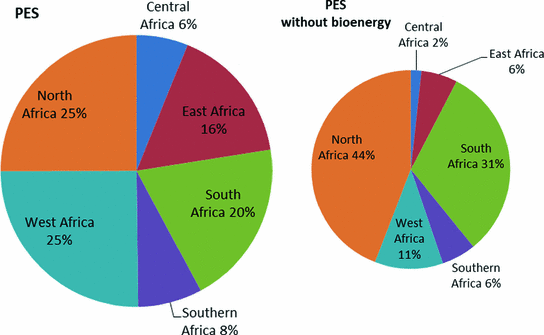(6 minutes read)
· A new report by Rocky Mountain Institute called the “Africa Stimulus Strategy” suggests actionable interventions by the stakeholders-governments, development partners, and the local private sector in the region to guide the continent to a recovery
· The Institute suggests six actionable interventions by governments, development partners, and the local private sector that can guide the sub-Saharan countries in their recovery from the fallout of the outbreak
· According to the report, availability of uninterrupted energy in right measure at competitive prices can counter disruptions induced by the pandemic
Recession in sub-Saharan Africa, the first after 25 years, can be directly linked to the Covid-19 pandemic. Many theories are put forward on how to reverse the recession as early as possible through interventions by the stakeholders. A new report by Rocky Mountain Institute called the “Africa Stimulus Strategy” suggests actionable interventions by the stakeholders-governments, development partners, and the local private sector in the region to guide the continent to a recovery.
According to the report, availability of uninterrupted energy in the right measure at competitive prices can counter disruptions induced by the pandemic. The countries in the region overlooked health facilities and essential services. This was compounded by the recent collapse of oil prices affecting national budgets. Trade balances were increasing for those countries in the region which have to import oil. Cumulative impact of these factors have acted as a drag on its resource mobilization and investments.
Rocky Mountain Institute (RMI) suggests six actionable interventions by governments, development partners, and the local private sector that can guide the sub-Saharan countries in their recovery from the fallout of the outbreak.
Foremost is establishing structures like tariff incentives, feed-in tariffs and net energy metering, grid connected distributed energy resources (DERs) for healthcare and other critical facilities to boost large scale deployment to the right segments.
The second in importance is augmenting electrification efforts for making available clean energy. Clean energy companies face chronic high cost, thereby sourcing of credit becomes expensive, as high as 15 %to 20% and that too by committing collaterals as high as 100%. This prevents many companies from investing in energy, particularly clean energy.
The other recommendation is to re-orient public funds for production of cost effective toward productive use equipment and energy efficiency programs, enabling small- and medium-sized enterprises (SMEs) to develop while offsetting electric load growth. This needs extending low-cost, long-term capital to boost local private sector investment in domestic manufacturing of electrical equipment required for power sector transition initiatives.
The next in importance is electrifying transportation to trigger the transition toward green mobility by investing in the development and deployment of charging infrastructure, especially for electric two- and three-wheelers, which are already commercially viable across the continent. The next in importance is the unlocking of energy efficiency by granting tax relief schemes to encourage local banks to direct funds toward lending for energy efficiency programs dedicated to SMEs and priority sectors such as tourism and construction, saving money for end-use electricity users and reducing the need for new generation capacity. Establishment of a green guarantee mechanism to enable sub-Saharan African utilities to prioritize holistic plan-based power sector investments is the other important recommendation by the Institute.





